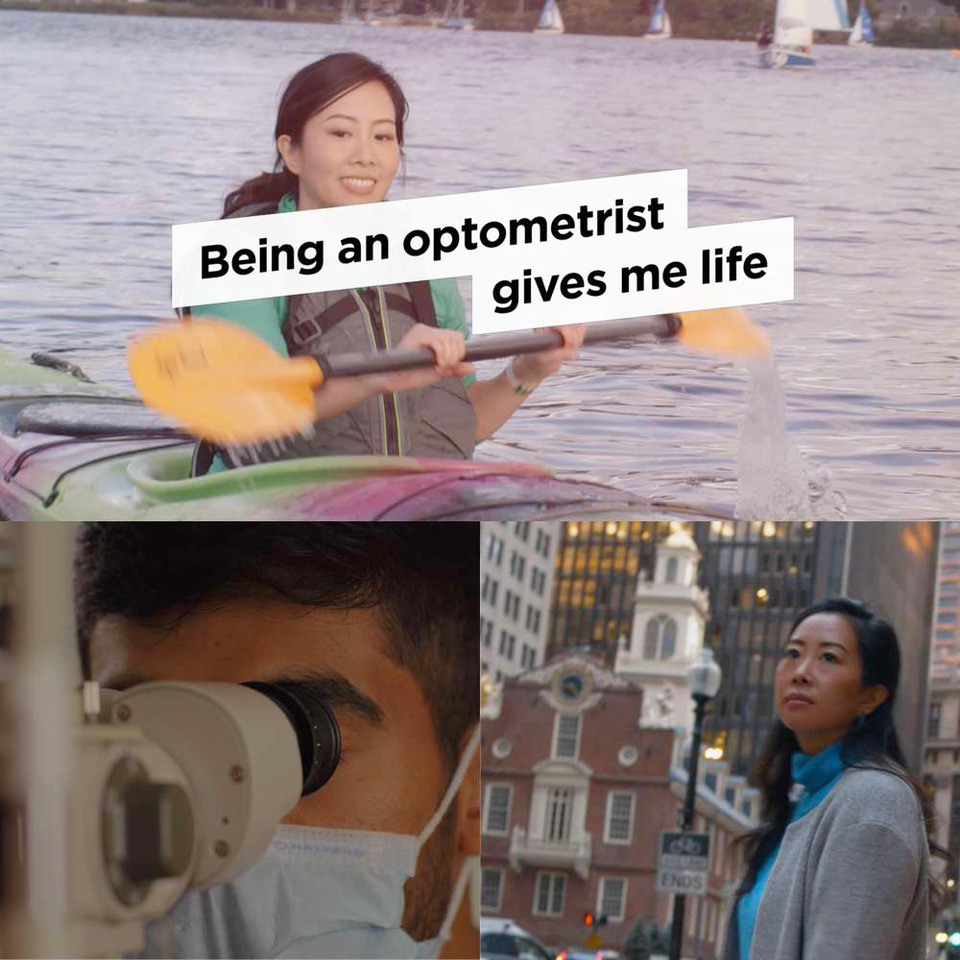 |
|
ASCO credits its public awareness campaign Optometry Gives Me Life, launched in 2019, with the boost in applicants for the most recent cycle. The ads emphasize the work/life balance possible in the optometric profession as well as the positive influence ODs have on their communities while earning six-figure incomes. Click image to enlarge. |
Concern that not enough undergrads opt to pursue a career in optometry relative to the number of slots available in educational institutions has been an emotional issue for many in the profession. New data just released by the Association of Schools and Colleges of Optometry (ASCO) may help allay those concerns, at least for now.
An ASCO press release issued today notes that US Optometric institutions collectively saw 2,868 applicants for the 2023-2024 application cycle; the previous high was 2,812 in the 2015-2016 cycle.
Noteworthy highlights cited by ASCO include:
- A 3.4% increase in applicants (2,868 vs. 2,773) compared to last cycle.
- A 7.6% increase in total number of applications (12,732 vs. 11,834). Applicants applied to an average of 4.44 schools and colleges.
- A 4.5% increase in Black/African American applicants (140 vs. 134) compared to last cycle. The highest number of Black/African American applicants occurred in 2020-2021 with 160 applicants.
- A 3.6% increase in Hispanic/Latino applicants (374 vs. 361). This application cycle shows the highest number of Hispanic/Latino applicants ever.
“These results are so exciting to see and I am thrilled that people are wanting to enter the wonderful and meaningful profession of optometry,” said ASCO President Dr. Fraser Horn in the association’s press release. “We are seeing the fruits of our public awareness campaign, Optometry Gives Me Life, which targets undergrads in a STEM program and shows them all that optometry can offer them as a career. Optometry is seeing growth and remains vital within the healthcare landscape. The future is bright for the profession of optometry.”
In related news, last week University of North Carolina at Pembroke announced that Rich Castillo, OD, DO, will be the founding dean of that institution’s new optometry college and will seat its first class in the 2027-2028 academic year. Dr. Castillo, who will begin his new role Aug. 5, said in a press release that his first priority will be assembling a high-quality faculty with an “eye toward the future, who understands healthcare and is prepared to educate and train future optometric physicians for practice in the 21stcentury.” Previously, Dr. Castillo served nearly 30 years at Northeastern State University Oklahoma College of Optometry as a clinical professor, assistant dean and chief of surgical services.
Several other new optometry schools have been announced or considered in recent years, including one at University of Texas Rio Grande Valley that is also targeting a 2027 opening, another new North Carolina facility gearing up in High Point, NC, and one currently in the works at the University of Detroit. If all plans come to fruition, the profession’s educational footprint will grow from its current slate of 24 US schools and colleges to 28 institutions by the end of this decade.


